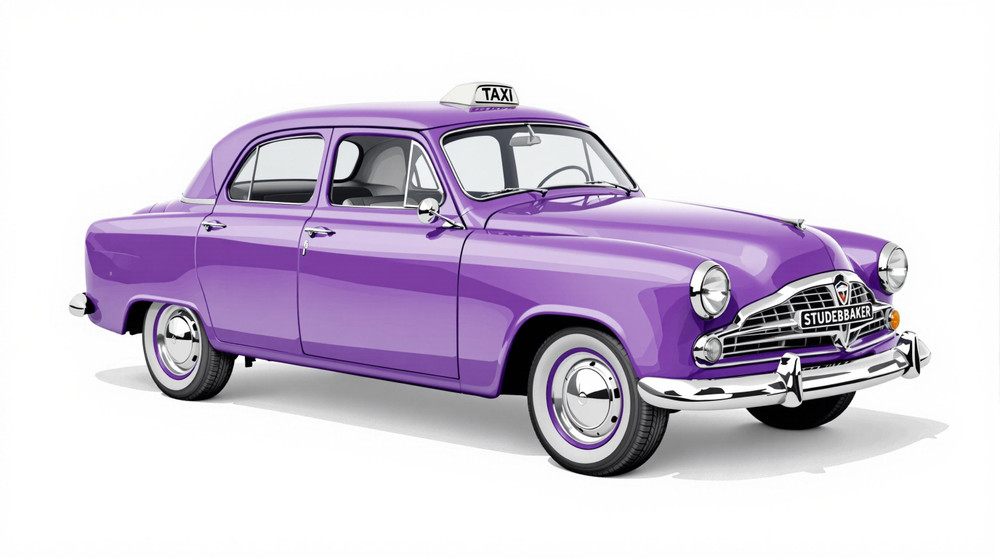Image of 1951 Studebaker Taxi, Note: These illustrations use artistic license and may differ from actual historical models.
Performance Metrics
Fundamental Metrics
Emotional Appeal
MMP Rating
| Engine Specifications | |
|---|---|
| Engine: | Inline 6 |
| Displacement: | 170 cubic inches |
| Horsepower: | Estimated 85 hp |
| Torque: | 125 lb-ft |
| Compression Ratio: | Estimated 7.0:1 |
| Ignition System: | Distributor and coil |
| Cooling System: | Liquid-cooled |
| Performance Specifications | |
| 0-60 Time: | Estimated 20 seconds |
| 1/4 Mile Time: | 22 seconds |
| Top Speed: | Estimated 75 mph |
| Transmission and Drive | |
| Drive Type: | Rear-wheel drive |
| Transmission Type: | 3-speed manual |
| Fuel and Efficiency | |
| Fuel System Type: | Carburetor |
| MPG: | Estimated 15-20 mpg |
| Dimensions and Brakes | |
| Brakes: | Drum brakes |
| Wheelbase: | 113 inches |
| Weight: | Estimated 3,200 lbs |
Note: Specifications for classic cars are given to the best of our ability, considering the limited and variant data available.
1951 Studebaker Taxi: A Journey Back to Mid-Century Americana
The 1951 Studebaker Taxi stands as a testament to the ingenuity and flair of post-war American automotive design. Born from the Studebaker Corporation, an entity with roots reaching back to the days of horse-drawn wagons, this vehicle emerged as a symbol of practicality and style. At a time when America was pivoting from wartime austerity to peacetime prosperity, the Studebaker Taxi carved out its own niche in the urban landscape. Notably, this model gained a reputation for its durability and became a common sight on bustling city streets.
Design and Innovation
The exterior of the 1951 Studebaker Taxi was a blend of function and elegance, with its rounded body lines and prominent front grille that commanded attention. The taxi's silhouette was punctuated by the iconic bullet nose—a design element that made it instantly recognizable. Inside, passengers were greeted with durable yet comfortable materials, designed to withstand the rigors of constant use. The dashboard and controls were straightforward, reflecting Studebaker's commitment to driver ease and efficiency.
Technologically, the Studebaker Taxi was equipped with features that were advanced for its time, such as an automatic hill holder and overdrive transmission options. Color options were typically utilitarian, with yellow being the popular choice for its high visibility. The sedan body style was prevalent among taxi variants, offering ample space for passengers and luggage alike.
Historical Significance
The 1951 Studebaker Taxi's impact on automotive design is notable for its blend of aesthetics and utility. It stood apart from contemporaries with its distinctive styling and robust construction—qualities that helped cement its place in automotive history. The model's legacy is evident in how it set a precedent for future taxis prioritizing passenger comfort and vehicle endurance.
Performance and Handling
Performance-wise, the 1951 Studebaker Taxi was not built for speed but rather reliability. Its top speed and acceleration were modest by today's standards but sufficient for urban transport duties. Handling-wise, it offered a smooth ride capable of absorbing the imperfections of mid-century city roads. Drivers appreciated the car's predictable handling characteristics and mechanical simplicity.
Ownership Experience
As a daily driver or workhorse in commercial fleets, the Studebaker Taxi was valued for its straightforward maintenance and reliability. Parts were generally accessible, making repairs manageable for the average owner. Its robustness also made it a favorite among classic car enthusiasts who sought a piece of Americana with practical charm.
Fun Facts
A little-known tidbit about the 1951 Studebaker Taxi is that it occasionally found itself on screen in period films and television shows set in post-war America. While not known for breaking records in speed or sales, it held an unofficial record for durability in service. Criticisms often centered around its modest power output but were offset by praise for its build quality.
Collector's Information
Today, the 1951 Studebaker Taxi holds moderate appeal among collectors due to its unique place in automotive history. While production numbers weren't extraordinarily high, surviving examples are relatively scarce. Current values range widely based on condition but can fetch anywhere from $10,000 to $30,000 or more at auction. The market trend shows a slow appreciation as nostalgia for this era grows.
Conclusion
The 1951 Studebaker Taxi remains an enduring icon of an era when practicality met post-war optimism on four wheels. Its legacy endures in the hearts of classic car enthusiasts who cherish both its historical significance and timeless design. As we look back on this remarkable vehicle, we're reminded that sometimes the most ordinary cars can leave an extraordinary mark on history.
1951 Studebaker Taxi Catalog of Parts
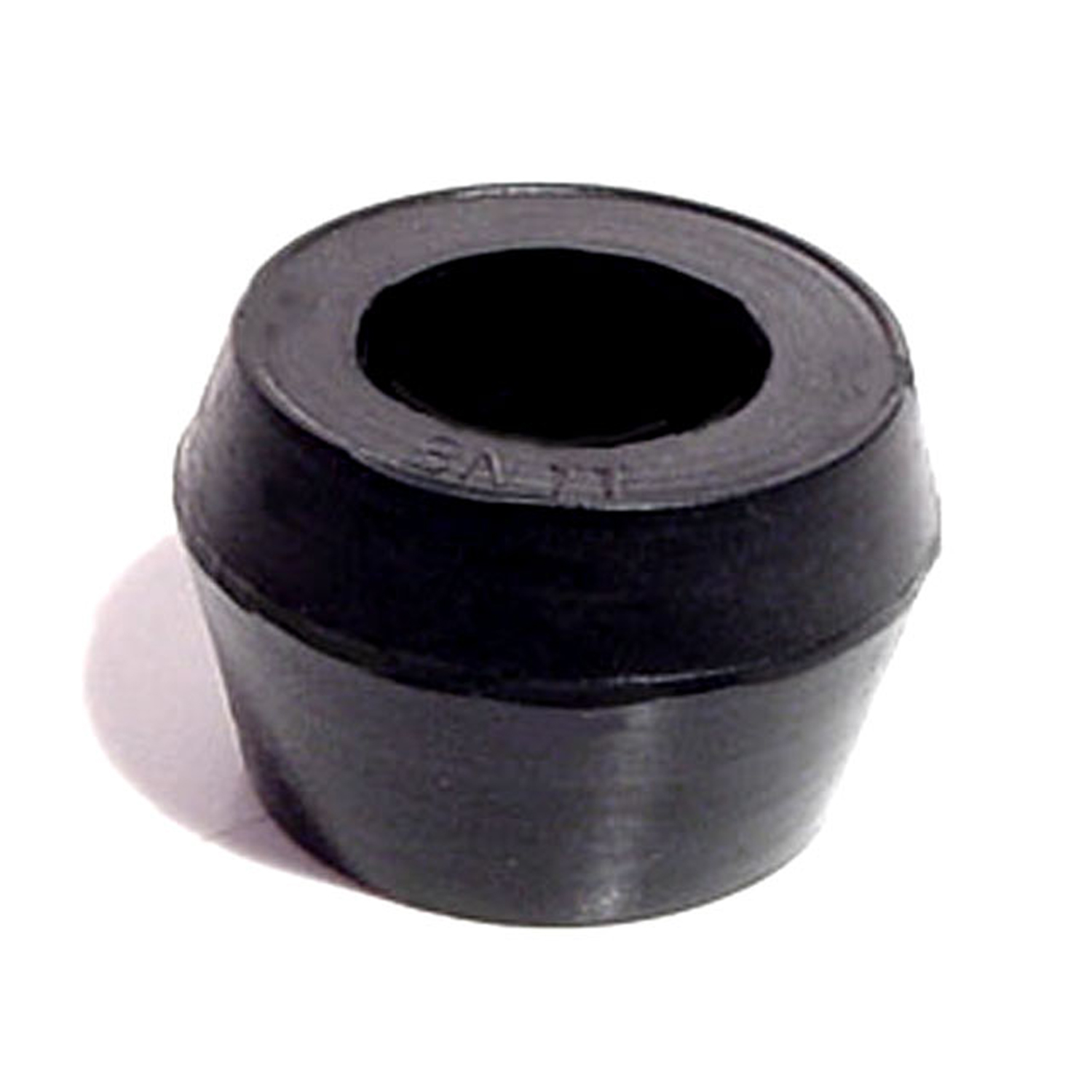 1951 Studebaker Taxi Shock Absorber Grommet. 1" bottom O.D-BN 11Shock Absorber Grommet. 1" bottom O.D., 3/4" high, with 5/8" I.D. Each
1951 Studebaker Taxi Shock Absorber Grommet. 1" bottom O.D-BN 11Shock Absorber Grommet. 1" bottom O.D., 3/4" high, with 5/8" I.D. Each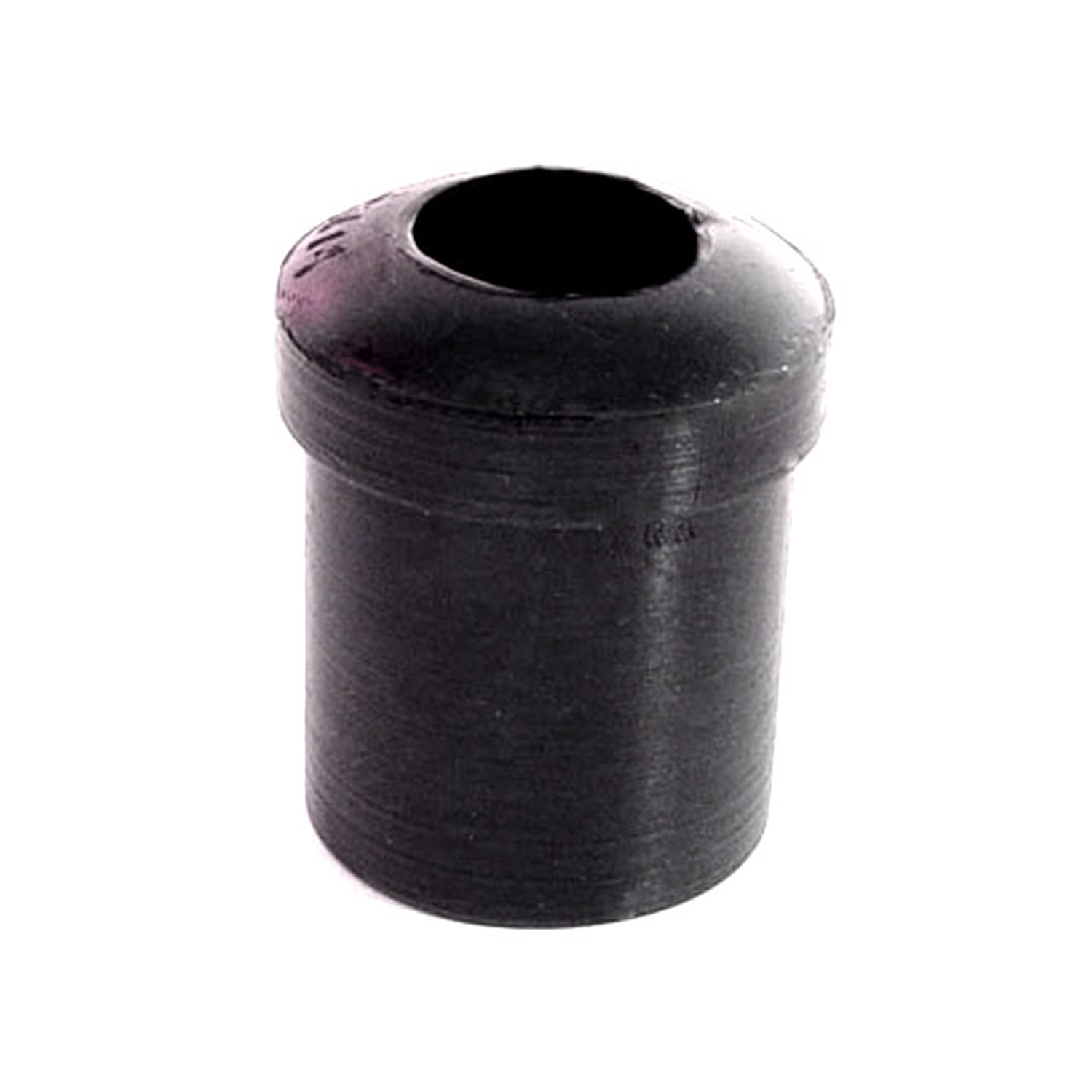 1951 Studebaker Taxi Spring and Shackle Bushing. 1-1/16" bottom O.D-BN 14Spring and Shackle Bushing. 1-1/16" bottom O.D. X 1-1/2" high, with 5/8" I.D. Each
1951 Studebaker Taxi Spring and Shackle Bushing. 1-1/16" bottom O.D-BN 14Spring and Shackle Bushing. 1-1/16" bottom O.D. X 1-1/2" high, with 5/8" I.D. Each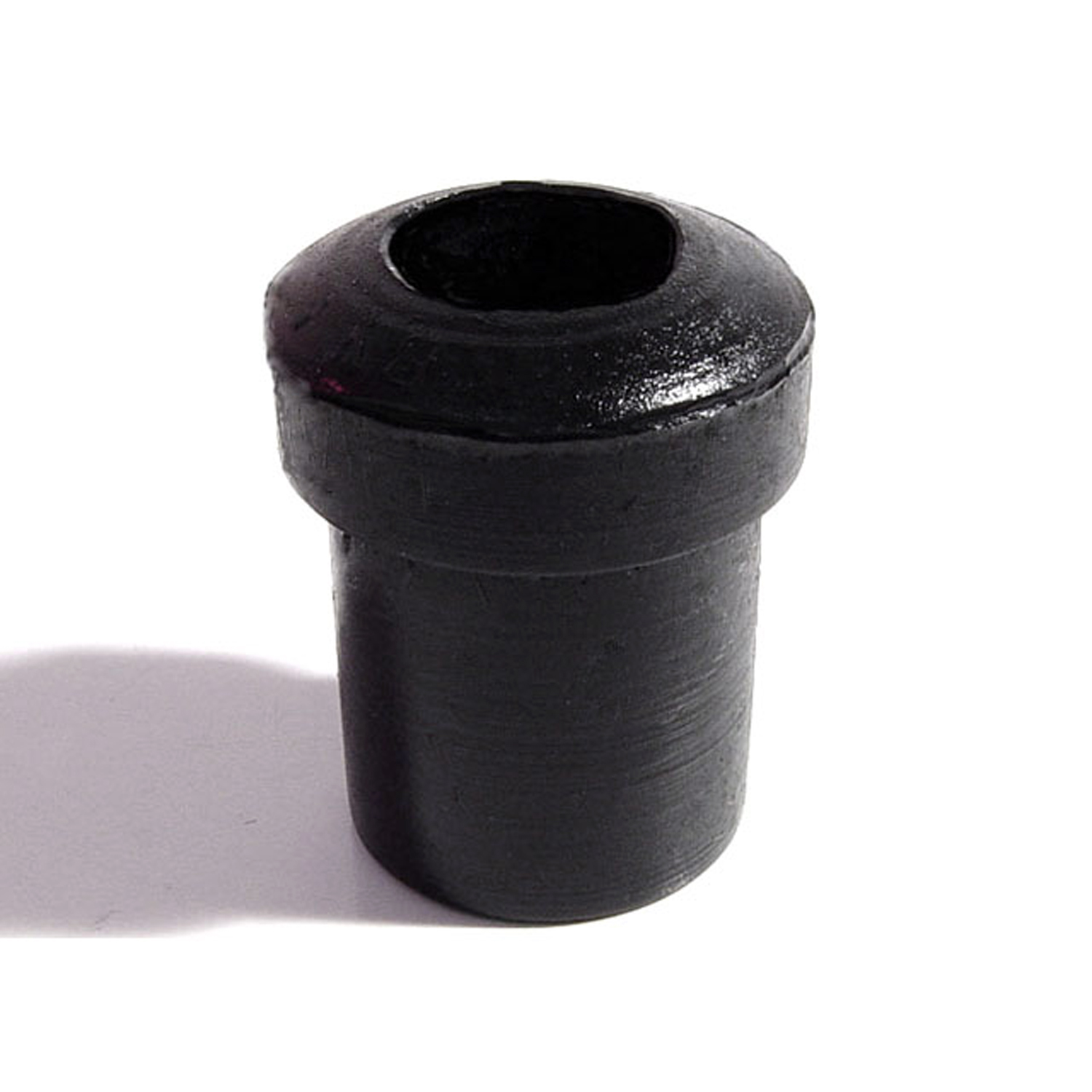 1951 Studebaker Taxi Spring and Shackle Bushing. 7/8" bottom O.D-BN 16Spring and Shackle Bushing. 7/8" bottom O.D. X 1-1/8" high, with 1/2" I.D. Each
1951 Studebaker Taxi Spring and Shackle Bushing. 7/8" bottom O.D-BN 16Spring and Shackle Bushing. 7/8" bottom O.D. X 1-1/8" high, with 1/2" I.D. Each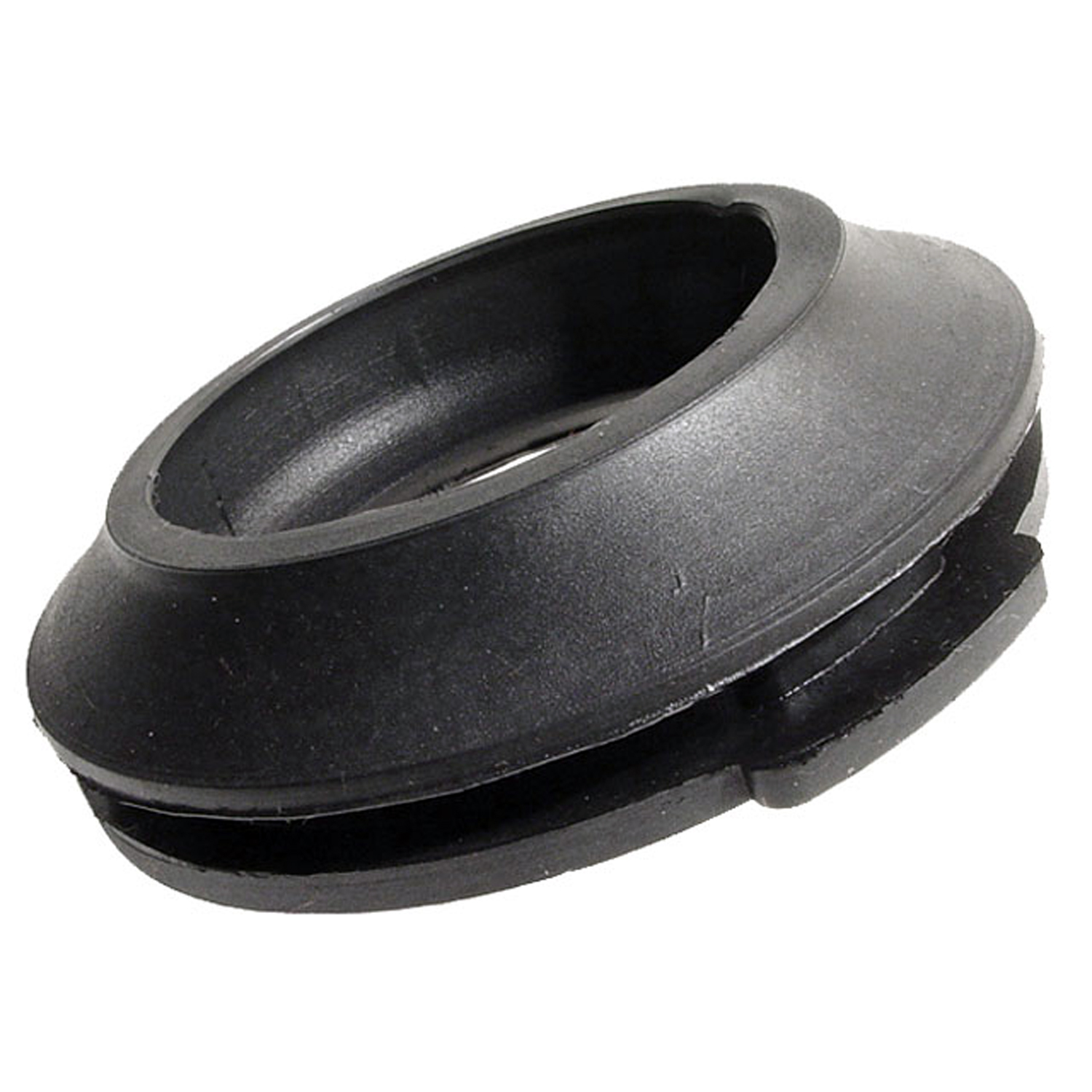 1951 Studebaker Taxi Gas Filler Grommet. Perfect reproduction. Top 2-1/16" I.D-GF 45Gas Filler Grommet. Perfect reproduction. Top 2-1/16" I.D., 3-7/16" O.D. Each
1951 Studebaker Taxi Gas Filler Grommet. Perfect reproduction. Top 2-1/16" I.D-GF 45Gas Filler Grommet. Perfect reproduction. Top 2-1/16" I.D., 3-7/16" O.D. Each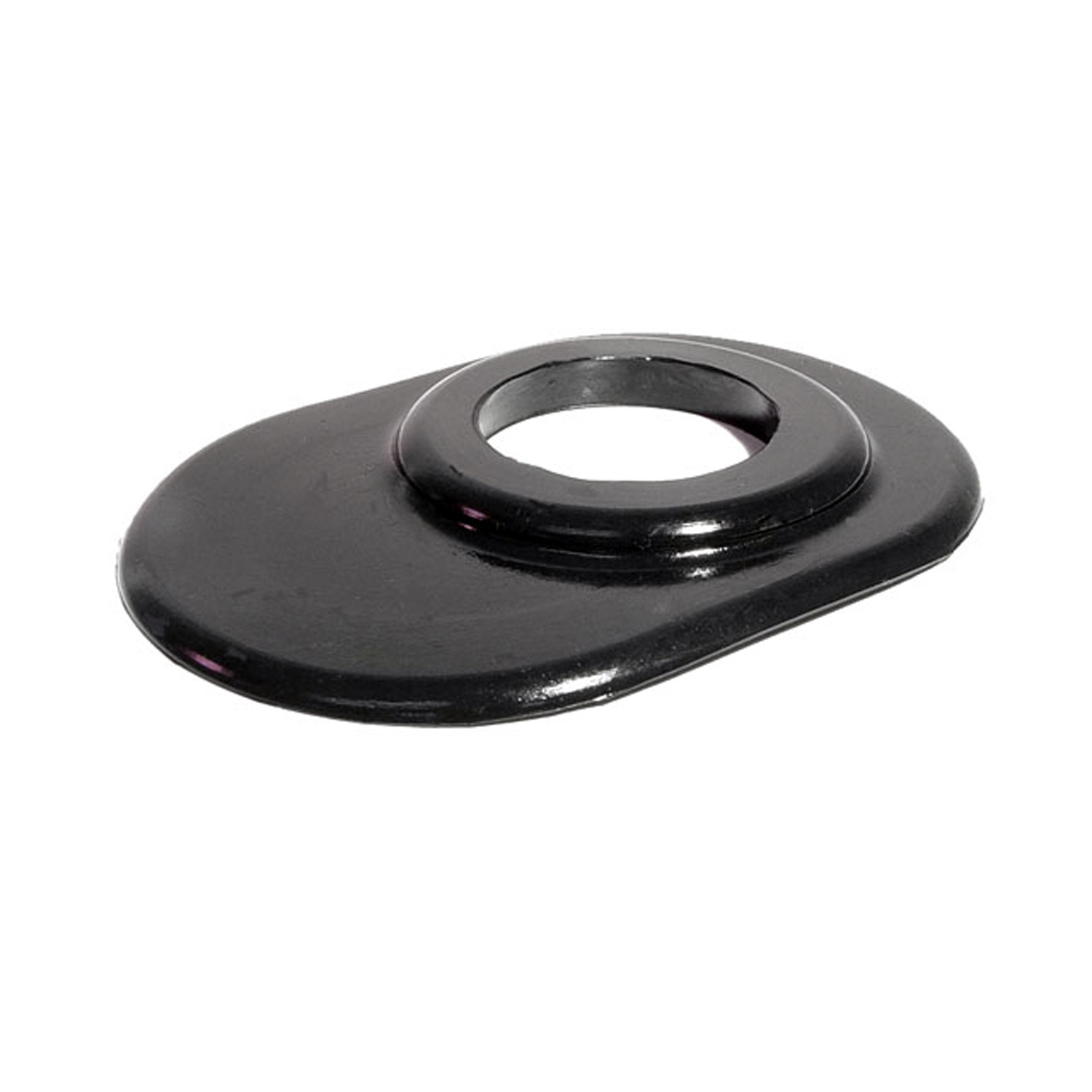 1951 Studebaker Taxi Steering Column Grommet. For 3-speed models. Each-SC 24-ASteering Column Grommet. For 3-speed models. Each
1951 Studebaker Taxi Steering Column Grommet. For 3-speed models. Each-SC 24-ASteering Column Grommet. For 3-speed models. Each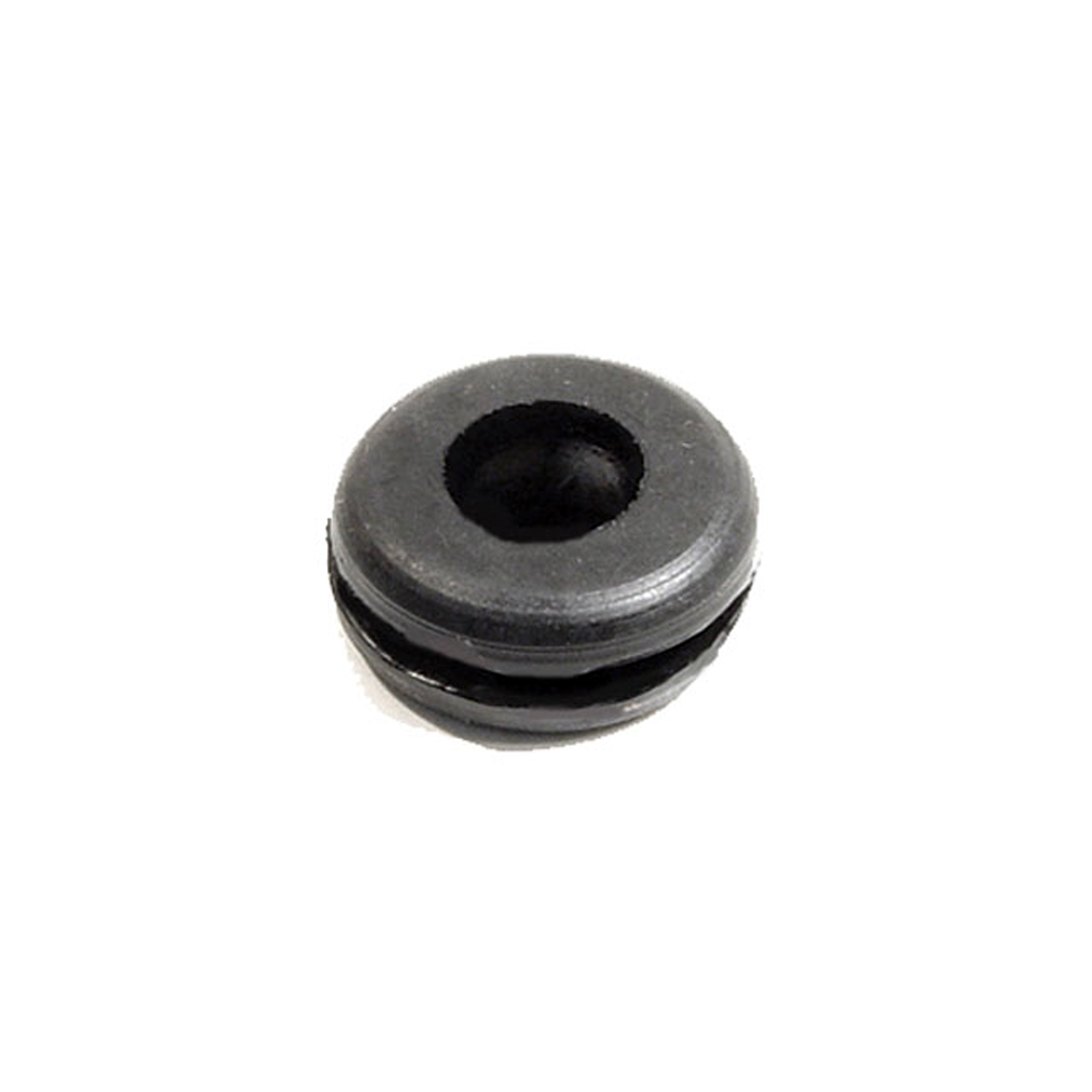 1951 Studebaker Taxi Headlight & Tail-Light Wire Grommet. 3/8" I.D., 7/8" O.D-SM 13-AHeadlight & Tail-Light Wire Grommet. 3/8" I.D., 7/8" O.D. Each
1951 Studebaker Taxi Headlight & Tail-Light Wire Grommet. 3/8" I.D., 7/8" O.D-SM 13-AHeadlight & Tail-Light Wire Grommet. 3/8" I.D., 7/8" O.D. EachWhy Choose Metro?
For over 100 years, Metro Moulded Parts has been the pinnacle of quality in classic car restoration parts. Our commitment to precision and authenticity in every component ensures a perfect fit and an OEM-level appearance.
- Expert Craftsmanship & Quality: Each part is a testament to our dedication to reliability and perfection, crafted from original designs and thoroughly tested.
- Advanced Technology: We use cutting-edge techniques to create flawless, long-lasting parts that surpass others in performance.
- SuperSoft Sponge – The Ultimate Door Seal: Not only are our door seals 30% softer than competitors', but they're also guaranteed to never leak. They effectively reduce wind and road noise, enhancing your classic car's comfort and driving experience.
- Proudly American: Our parts are a product of American craftsmanship, made in the USA with a spirit of excellence and heritage.
- Unrivaled Warranty: We back our products with a 30-year industry-leading warranty, a testament to our confidence in their quality.
Join us in preserving the legacy of classic cars with parts that are crafted for perfection, not just made.

